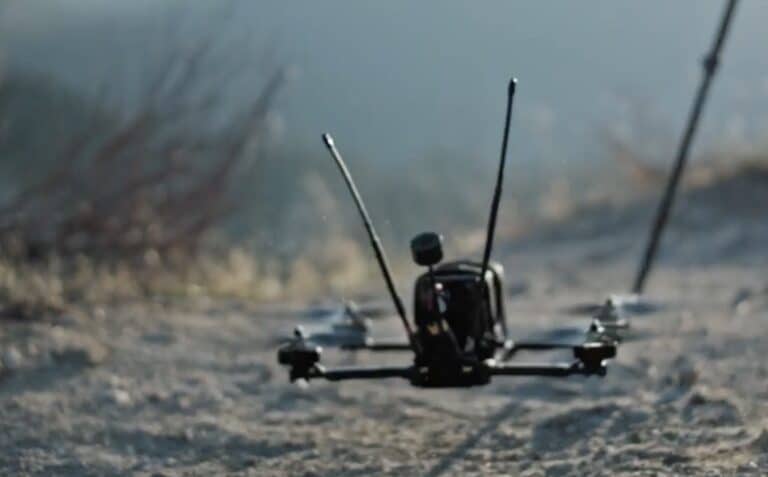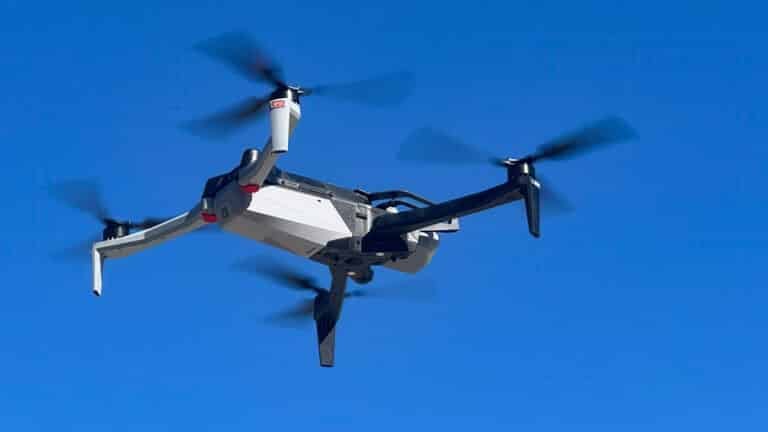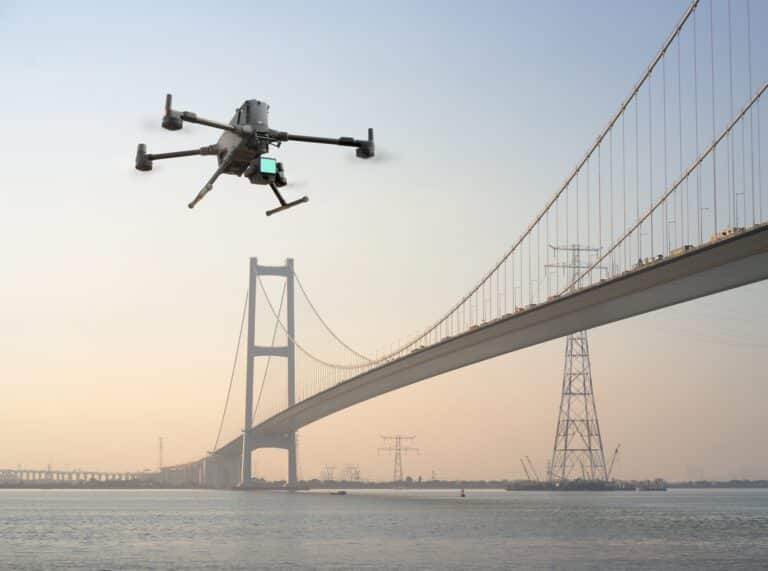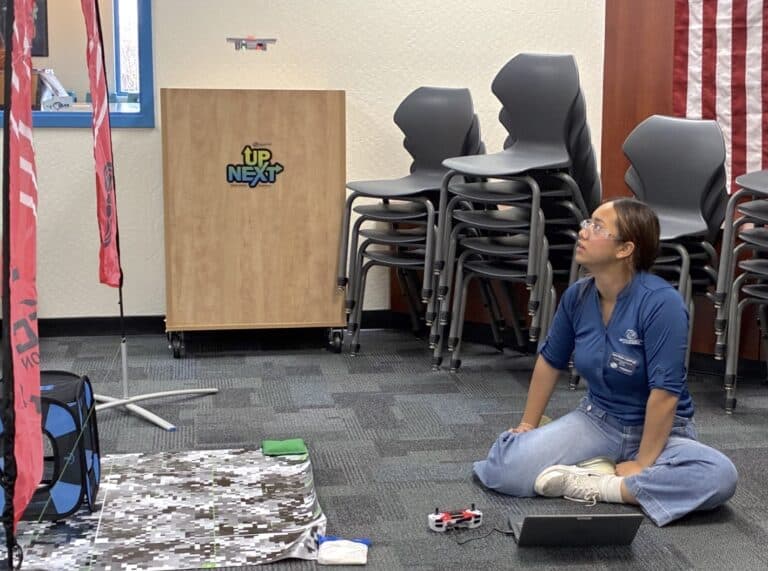Bands Boycott Spotify Over CEO’s Investment in Military Helsing Drones

Check out the Best Deals on Amazon for DJI Drones today!
In June 2025, a significant controversy emerged in the music industry when several prominent bands announced their decision to remove their music from Spotify, the world’s leading music streaming platform. The catalyst for this boycott is Spotify CEO Daniel Ek’s substantial investment in Helsing, a German startup specializing in artificial intelligence (AI) for military applications, including combat drones. This development has sparked a heated debate about the ethical responsibilities of technology leaders whose personal investments intersect with controversial industries like defense.

For DroneXL readers, this issue is particularly relevant, as it highlights the complex interplay between drone technology, ethical considerations, and the creative economy. This article provides a detailed examination of the boycott, the bands involved, their reasons for protesting, Ek’s motivations for investing in Helsing, and the broader implications for Spotify and the music industry.
The Boycott: The Bands and Their Stances
Several independent bands have taken a stand against Spotify by withdrawing their music from the platform. The key players in this boycott include:
- Deerhoof: A San Francisco-based art-rock band, Deerhoof was among the first to act, announcing on June 30, 2025, that they would remove their entire catalog from Spotify. Greg Saunier, the band’s drummer, stated, “We don’t want our music killing people,” emphasizing their objection to Ek’s investment in military technology. Deerhoof also criticized the broader trend of AI militarization, noting, “AI battle tech is clearly emerging as the hot new big ticket item for the super-rich”.
- Xiu Xiu: This experimental band followed suit, announcing on July 24, 2025, their intent to remove their music due to procedural complications but with a firm commitment to complete the process. They described Spotify as a platform that “uses music money to invest in war drones,” urging fans to cancel their subscriptions.
- King Gizzard & the Lizard Wizard: The Australian psychedelic rock band announced on July 25, 2025, that they had removed nearly their entire discography from Spotify, except for a collaborative EP. They stated, “Spotify CEO Daniel Ek invests millions in AI military drone technology. We just removed our music from the platform. Can we put pressure on these tech moguls to do better?”.
- Kalahari Oyster Cult: This Amsterdam-based electronic label joined the boycott, stating, “We don’t want our music contributing to or benefiting a platform led by someone backing tools of war, surveillance, and violence”.




Other artists, such as Darren Sangita and Skee Mask, participated in a similar boycott in 2021 following Ek’s initial investment in Helsing, indicating a recurring pattern of discontent. Additionally, artists like Neil Young and Joni Mitchell have previously withdrawn their music from Spotify over unrelated issues, such as misinformation on podcasts, though some later returned.
Why are the reasons behind the Boycott?
The boycott is driven by a combination of ethical and financial grievances:
- Ethical Concerns Over Military Investment: The primary reason is Ek’s investment in Helsing, which develops AI-powered combat drones and military software. Artists argue that their music on Spotify indirectly supports these endeavors, particularly in light of global conflicts such as those in Ukraine and Gaza. Deerhoof’s Saunier specifically questioned whether streams of their music contribute to “making all that we’ve seen in Gaza more frequent and profitable” (Los Angeles Times, July 31, 2025). This sentiment reflects a broader concern that music, a medium often associated with peace and creativity, is being linked to technologies of war and surveillance.
- Low Royalty Payments: Spotify’s royalty structure, which pays artists approximately $3 per thousand streams, has long been a point of contention. The United Musicians and Allied Workers, a union advocating for better royalties, labeled Ek a “warmonger who pays artists poverty wages”. This disparity is particularly stark given Ek’s estimated net worth of $10.3 billion.
- Spotify’s Strategic Shift: Artists are frustrated with Spotify’s pivot toward AI and podcasting, exemplified by multimillion-dollar deals with figures like Joe Rogan, while musicians receive minimal compensation. Policies like Discovery Mode, where artists accept lower royalties for better algorithmic placement, further exacerbate tensions.
- Moral Misalignment: The boycott reflects a deeper ideological conflict. Artists like Kalahari Oyster Cult argue that Spotify’s association with military technology contradicts the values of the creative community, which often champions peace and social justice.
Daniel Ek’s Investment in Helsing
Daniel Ek’s investment in Helsing is at the core of this controversy. Through his investment firm, Prima Materia, Ek has made significant financial commitments to the German defense startup:
In June 2025, Ek led a €600 million ($702 million) Series D funding round for Helsing, following a €100 million ($115 million) investment in 2021. These investments have elevated Helsing’s valuation to €12 billion ($13.8 billion), making it one of Europe’s most valuable private tech startups. Ek also serves as Helsing’s chairman, a role he assumed in 2021.

Founded in 2021 by Gundbert Scherf, Torsten Reil, and Niklas Köhler, Helsing initially focused on AI software for defense, such as the Altra system, which integrates sensor data for real-time battlefield awareness. Since late 2023, the company has expanded into hardware, producing the HX-2 AI Strike Drone, capable of autonomous operations without GPS and resistant to electronic interference. Helsing has supplied thousands of drones to Ukraine and secured contracts with the UK, German, and Swedish governments. The company is also developing unmanned surveillance submarines.
Helsing has raised €1.37 billion ($1.48 billion) to date, with additional investors including Saab, Lightspeed Venture Partners, Accel, Plural, and General Catalyst. The latest funding round is intended to accelerate “all-domain defense innovation”
To fund these investments, Ek has sold over $800 million in Spotify stock since mid-2023, including $376 million in 2024, while retaining 29.1% voting rights and 14.3% capital in Spotify
Ek defends his investment, arguing that AI and autonomous technologies are critical for Europe’s defense and technological sovereignty. He stated, “This war has made it clear: the future of defence is driven by AI, scale, and autonomy,” acknowledging potential criticism but asserting, “I genuinely believe this is the right step for Europe”.
Spotify’s Response
Spotify has not issued an official response to the boycott, and attempts to contact Ek or the company for comment have gone unanswered. This silence contrasts with Spotify’s financial performance, with quarterly revenues of $4.8 billion and a record-high operating income of €509 million ($535.6 million) in Q1 2025.
What Are The Broader Implications?
The boycott underscores significant tensions between the creative economy and the defense industry. Artists view their work as a force for peace and expression, making their association with a platform linked to military technology deeply problematic. This is particularly poignant given Spotify’s low royalty rates, which exacerbate financial struggles for many musicians. The platform’s shift toward AI and podcasting, including high-profile deals with figures like Joe Rogan, further fuels perceptions that Spotify prioritizes profit over its core music mission.
The controversy also raises broader questions about the role of tech companies in funding military technology. As AI becomes increasingly integrated into warfare, concerns about accountability, transparency, and the potential for misuse grow. Helsing’s technology, deployed in Ukraine and tested in European militaries, represents a new frontier in autonomous warfare, prompting ethical debates about the militarization of AI.
For Spotify, the boycott poses a reputational risk, particularly among younger, ethically conscious consumers who prioritize alignment with their values. While the immediate financial impact may be limited due to Spotify’s dominance—paying out $10 billion to rights holders in 2024, roughly 25% of the global recorded music business—the long-term effects on user loyalty and artist relations could be significant. The boycott may also inspire other artists to follow suit, though smaller acts reliant on Spotify’s exposure face economic barriers to leaving.
DroneXL’s Take
As a drone pilot myself, I find this story important because it shows how drones are being used in ways that go beyond hobbies like aerial photography or racing. Drones are now part of military operations, and this raises serious questions about their impact.
I understand why the bands are upset. Music is meant to bring people together and inspire positive feelings, not to be linked with technologies that could be used in wars. If I were a musician, I would also feel uncomfortable knowing my work might indirectly support military projects.
However, I can see Daniel Ek’s point of view. He believes that investing in companies like Helsing helps keep Europe safe, especially with conflicts like the war in Ukraine happening nearby. Drones and AI are becoming key parts of modern defense, and he might think this is a necessary step to protect his region.
As someone who loves drones, I know they can do amazing things, like helping farmers monitor crops, aiding in search and rescue missions, or delivering supplies to remote areas. But their use in warfare is a reality we can’t ignore. It’s a complex issue, and both sides have valid points.
I believe companies like Spotify should be open about where their money goes. Artists and listeners deserve to know if their subscriptions are connected to military technology, so they can decide whether to support the platform.
Transparency is key in situations like this.
This boycott reminds us that the choices tech companies make can affect more than just their business—they can impact entire industries and communities. It’s a call for everyone, including drone enthusiasts, to think about the ethical side of technology. What do you think about this issue? Should artists boycott Spotify, or is Ek’s investment justified? Share your thoughts in the comments!
Photographs courtesy of Spotify and Helsing
Discover more from DroneXL.co
Subscribe to get the latest posts sent to your email.
Check out our Classic Line of T-Shirts, Polos, Hoodies and more in our new store today!

MAKE YOUR VOICE HEARD
Proposed legislation threatens your ability to use drones for fun, work, and safety. The Drone Advocacy Alliance is fighting to ensure your voice is heard in these critical policy discussions.Join us and tell your elected officials to protect your right to fly.
Get your Part 107 Certificate
Pass the Part 107 test and take to the skies with the Pilot Institute. We have helped thousands of people become airplane and commercial drone pilots. Our courses are designed by industry experts to help you pass FAA tests and achieve your dreams.

Copyright © DroneXL.co 2026. All rights reserved. The content, images, and intellectual property on this website are protected by copyright law. Reproduction or distribution of any material without prior written permission from DroneXL.co is strictly prohibited. For permissions and inquiries, please contact us first. DroneXL.co is a proud partner of the Drone Advocacy Alliance. Be sure to check out DroneXL's sister site, EVXL.co, for all the latest news on electric vehicles.
FTC: DroneXL.co is an Amazon Associate and uses affiliate links that can generate income from qualifying purchases. We do not sell, share, rent out, or spam your email.



















And they will be the first ones crying when Russia attacks and the world has nothing to defend themselfs. Bunch of babies that have no clue whats going on in the world. Send them over to Ukraine on the front lines and see how they feel.